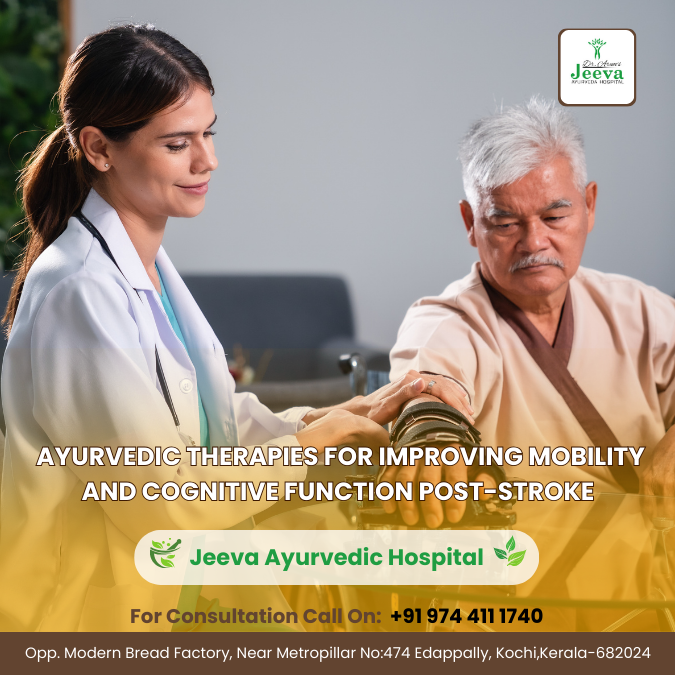Ayurveda, the ancient Indian system of medicine, offers a holistic approach to improving mobility and cognitive function following a stroke. Stroke survivors often face challenges in regaining their physical abilities and mental faculties, but Ayurvedic therapies can complement conventional treatments to promote recovery and enhance overall well-being.
Abhyanga (Ayurvedic Massage): Abhyanga involves gentle, rhythmic massage with warm herbal oils, which helps improve circulation, reduces muscle stiffness, and promotes relaxation. Regular sessions of abhyanga can aid in restoring mobility and easing post-stroke muscle tightness.
Panchakarma Therapy: Panchakarma is a detoxification and rejuvenation therapy that aims to eliminate toxins from the body and restore balance to the doshas (bioenergetic forces). Panchakarma treatments can support recovery by cleansing the body, improving digestion, and enhancing energy levels.
Herbal Supplements: Ayurvedic herbs such as Ashwagandha, Brahmi, and Ginkgo Biloba are known for their neuroprotective and cognitive-enhancing properties. Incorporating these herbs into one’s daily regimen may help in boosting cognitive function and reducing the risk of recurrent strokes.
Yoga and Pranayama: Gentle yoga poses and breathing exercises can aid in improving flexibility, strength, and coordination post-stroke. Yoga practice also promotes relaxation and reduces stress, which are crucial for overall well-being and cognitive function.
Dietary Modifications: Ayurveda emphasizes the importance of a balanced diet tailored to one’s unique constitution (dosha). Consuming nourishing foods that are easy to digest, such as cooked vegetables, whole grains, and herbal teas, can support the body’s healing process and promote brain health.
Meditation and Mindfulness: Practicing meditation and mindfulness techniques can help stroke survivors manage stress, improve focus, and enhance mental clarity. Mind-body practices foster resilience and emotional well-being, essential aspects of recovery.
Ayurvedic Lifestyle Recommendations: Ayurveda advocates for a harmonious lifestyle that aligns with natural rhythms and cycles. Following daily routines (dinacharya), getting adequate rest, and maintaining positive social connections contribute to overall vitality and cognitive function.
Hydrotherapy: Hydrotherapy, including warm water immersion and hydro-massage, can aid in relieving muscle tension, improving circulation, and enhancing mobility post-stroke. Hydrotherapy sessions tailored to individual needs can provide therapeutic benefits and support rehabilitation efforts.
Acupuncture and Acupressure: Traditional Chinese medicine modalities like acupuncture and acupressure can complement Ayurvedic therapies by targeting specific points to alleviate pain, stimulate nerve function, and promote overall well-being.
Consultation with Ayurvedic Practitioners: Seeking guidance from qualified Ayurvedic practitioners is essential for personalized treatment plans that address individual needs and imbalances. Collaborating with healthcare professionals ensures safe and effective integration of Ayurvedic therapies into post-stroke care.
In conclusion, Ayurvedic therapies offer a comprehensive approach to improving mobility and cognitive function post-stroke, focusing on restoring balance to the body, mind, and spirit. By incorporating these holistic practices into rehabilitation plans, stroke survivors can enhance their quality of life and promote long-term recovery.


Give a Reply